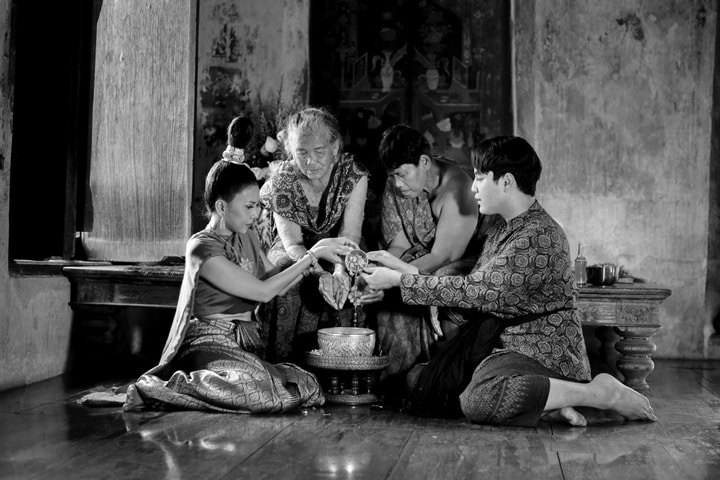Songkran in ancient times (video)
Tomorrow is April 13 and that is an important date for Thailand, namely the start of Songkran (April 13 – 15), the Thai new year. Most Thais are on vacation and use Songkran to return to their hometown to ring in the New Year with family.
During Songkran, parents and grandparents are thanked by sprinkling water on their children's hands. The water symbolizes happiness and renewal. We can read how that used to be done below.
A monk reminisces about Songkran in Isan circa 1925:
It did not matter whether the monks or the novices threw water on the women first or whether the women took the initiative. Everything was allowed after the start. The monks' robes and belongings in their kutis were soaking wet. The women ran after the monks when they retreated. Sometimes they only got hold of their robes.
If they seized a monk, he could be tied to a pole of his kuti. During their hunt, the women sometimes lost their clothes. The monks were always the losers in this game or they gave up because the women outnumbered them. The women played the game to win.
When the game was over, someone would take the women with gifts of flowers and incense sticks to ask the monks for forgiveness. It's always been that way.
Most Thais today consider this kind of situation scandalous, but the villagers thought otherwise. During the festival, women could tease monks and vice versa, and children could tease their elders, rituals where people could resist the normal course of events with impunity.
From 'Kamala Tiyavanich, Forrest Recollections. Wandering Monks in Twentieth-Century Thailand, Silkworm Books, 1997' pages 27-28
Thanks to Tino Kuis.


